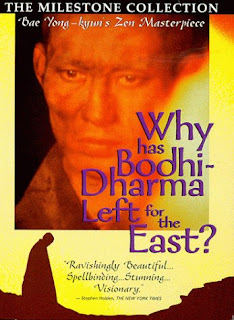Jim Kelly, the black guy in "Enter the Dragon," is dead. Strange that I'm feeling shocked and sad about it, considering I thought his whole career -- including his role in that movie, my all-time favorite -- was a sideshow act writ large. Some perspective is needed.
He had a dubious claim to fame as the father of blaxploitation martial arts movies, a mutant genre that saw names like Ron Van Clief and Taimak.
He parlayed his almost literal 15 minutes in "Enter the Dragon" -- he's the first and only one of the good guys to die, natch -- into starring roles as a gi-wearing Shaft in movies titled "Black Belt Jones," "Black Samurai," etc., as if the Afro didn't hammer home the point.
He was the blowout and the black belt, in one package. The combo seemed strange at first, fusing what were probably the two most disparate American minority groups. Blacks and Asians were, and still are, often forced by circumstance into the same neighborhoods, but they were, and still are, always at each other's throats.
But onscreen, in the person of Jim Kelly, they found harmony.
I've heard that on the whole, whites prefer samurai movies and blacks kung fu movies; reason being that samurai were about upholding order and kung fu heroes about tearing it down. It makes sense.
Reginald Hudlin, former BET president and a black man, remembers in the documentary "I Am Bruce Lee" how Harlemites cheered Bruce in "Way of the Dragon" for beating up The Man, in the form of Chuck Norris, on their behalf. And Bruce laying waste to a dojo in the Japanese-occupied Shanghai of "Fist of Fury"? That became Jim in the early scenes of "Enter the Dragon," taking out a couple of corrupt cops.
Jim was the unifier. He took a cool thing, blackness, made it cooler by adding martial arts, and enriched both sides in the process. Without him, for better or worse, there'd be no black martial arts heroes like those I mentioned. No Fu-Schnickens. No Wu Tang Clan. No "Man with the Iron Fists." (Hey, I did say "or worse.")
We now think of "Enter the Dragon" expressly as a Bruce Lee movie, but at the time (Bruce hadn't yet made a Hollywood-produced film) the studio split the billing between Bruce, Jim and John Saxon. (Consider one of the early titles for it: "The Deadly Three.")
Bruce was the talent, of course. John Saxon was the established white actor whose casting helped get the movie underwritten. And Jim was the one who made the movie young and pissed-off and irreverent ... and relevant.
To "Enter the Dragon," Jim contributed his blackness as much as he did his fighting skills. Shot as it was on a frozen-in-time island of indeterminate Asian location, with most of the cast in martial arts uniform throughout, the movie has Jim to thank for grounding it in a time: the Black Power '70s.
There is, as I mentioned, his fight with the cops. His unapologetic Afro, accentuated in one scene by noise-canceling headphones tuned (of course) to funk music. And his attitude, expressed in lines of dialogue that have become some of the movie's most memorable:
"Ghettos are the same all over the world. They stink!"
"Please understand -- if I missed anyone, it's been a big day. I'm a little tired."
"Out in the moonlight, baby."
"A human fly!"
"Only at how sloppy your man works."
"Bullshit, Mr. Han man!"
"Man, you come right out of a comic book."
Jim joins a couple others connected to the movie who've died in the past few years, for those keeping count like I am: Shih Kien (Han), dead in 2009, and Ahna Capri (Tania), dead in 2010. Add to that Jesse Glover and Jerry Poteet, disciples of Bruce Lee the martial artist, both dead in 2012.
My biggest reason for mourning Jim's passing, as I mourned those other folks', is a selfish one: Jim's death feels like another part of Bruce Lee dying.
As much as I exalt Bruce and will probably forever think of him as that young shirtless guy jumping at the camera, I do occasionally remember that he walked on soil like the rest of us. What reminds me are the ongoing lives of people who knew him, the ones who bore witness to his career and then carried on, it seems, because he couldn't. While they live, he lives.
I guess that's the bitch of dying young: Others are stuck remembering you for a long, long time.
So now it's come time to remember one more. Thank you, Jim. And may you leave the island in peace.







